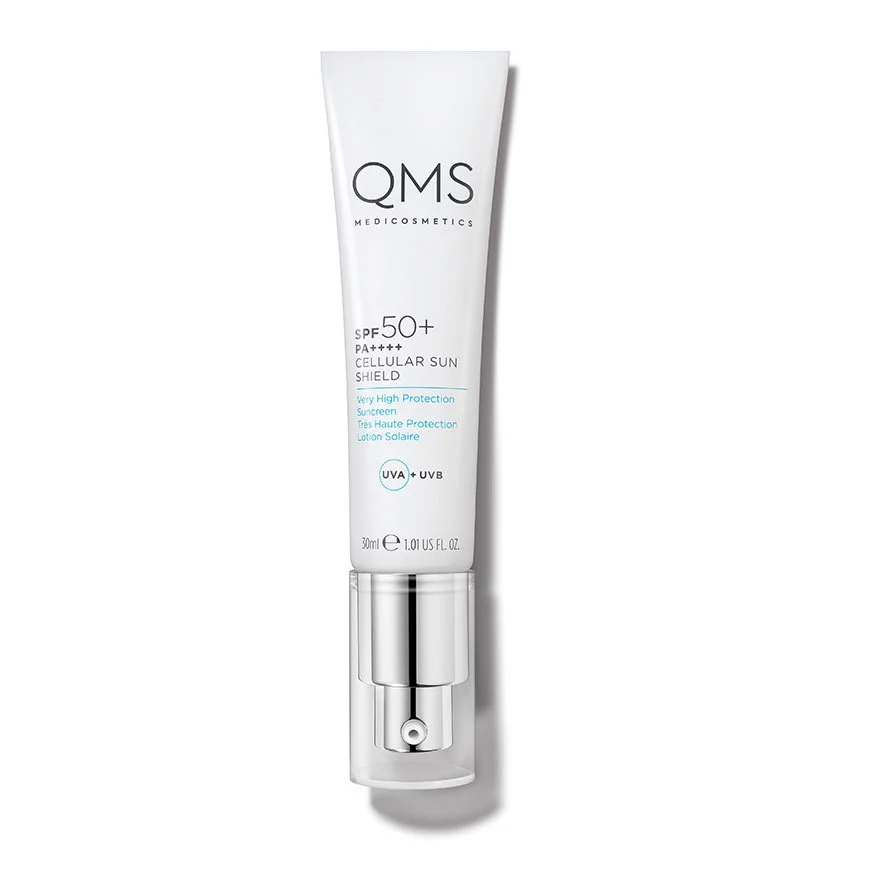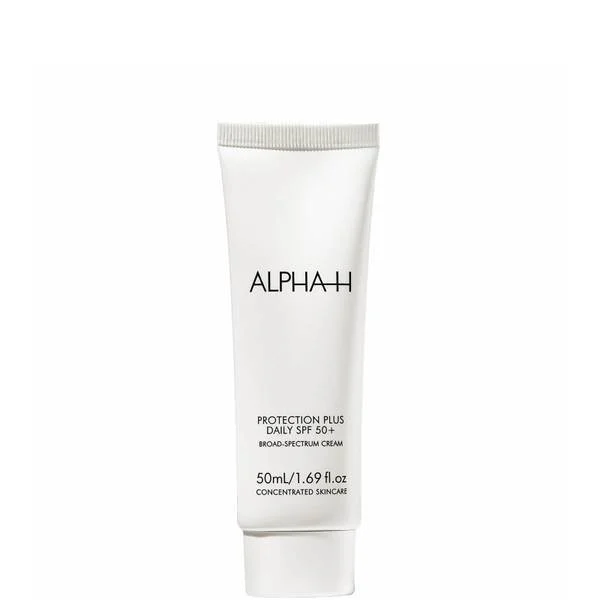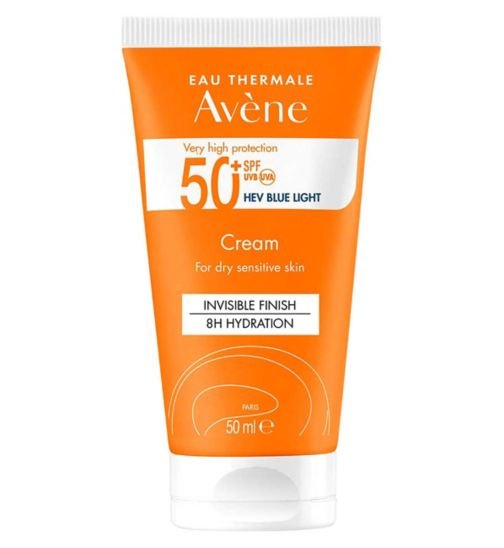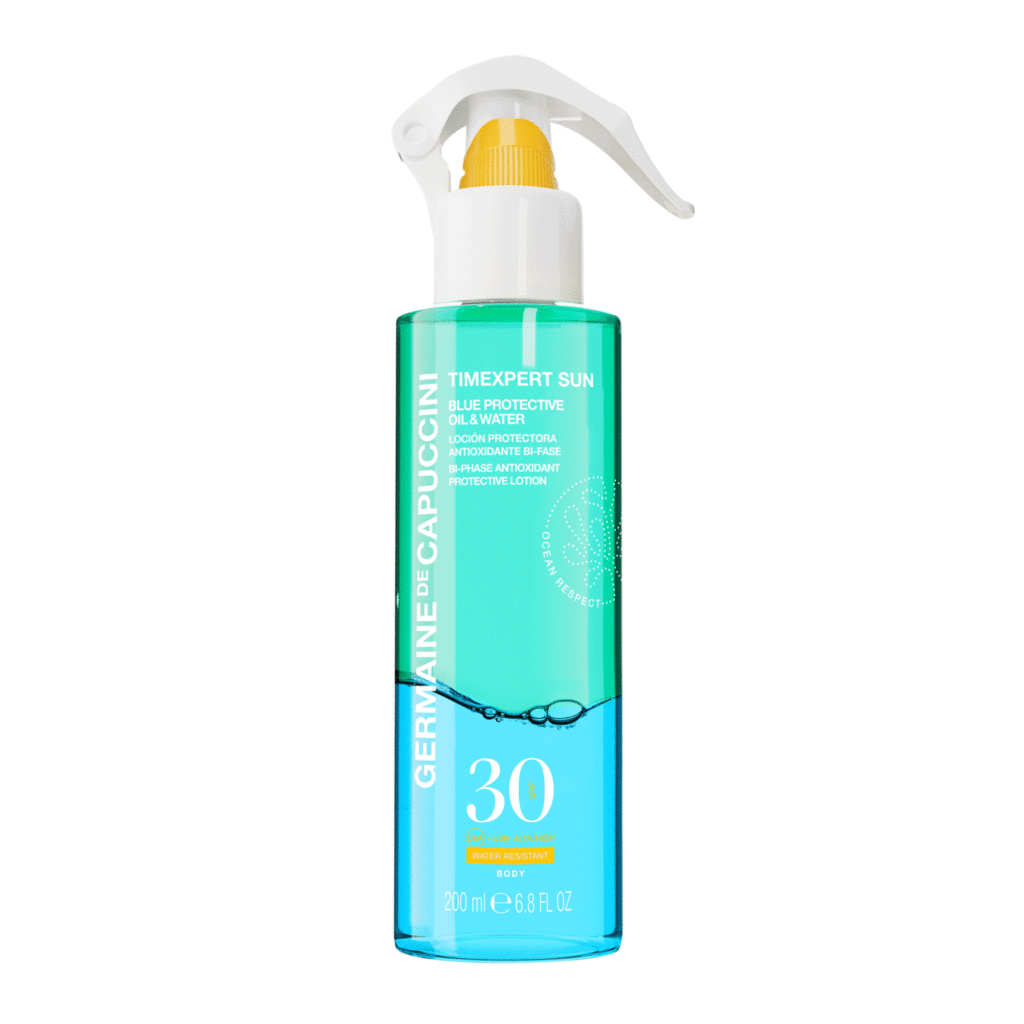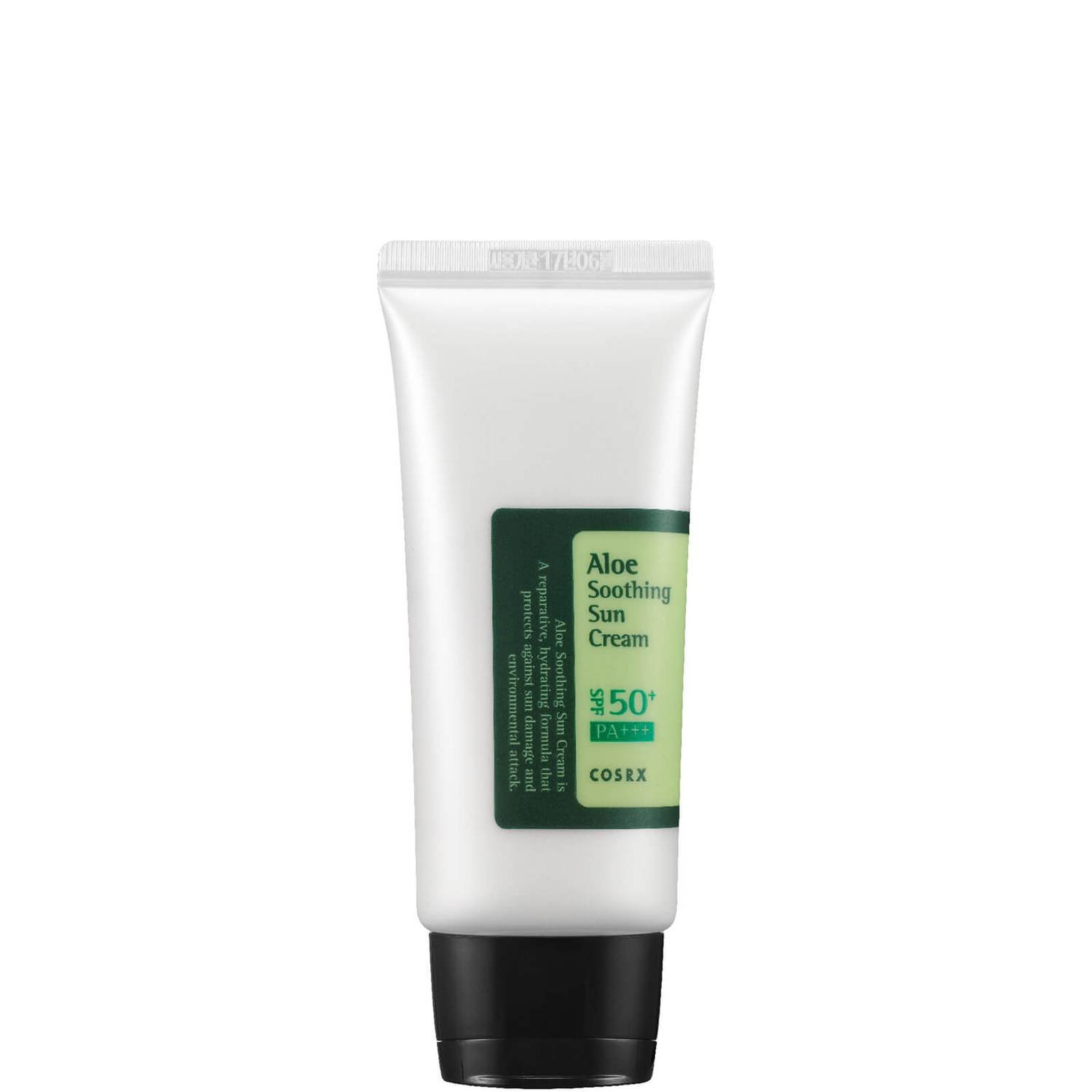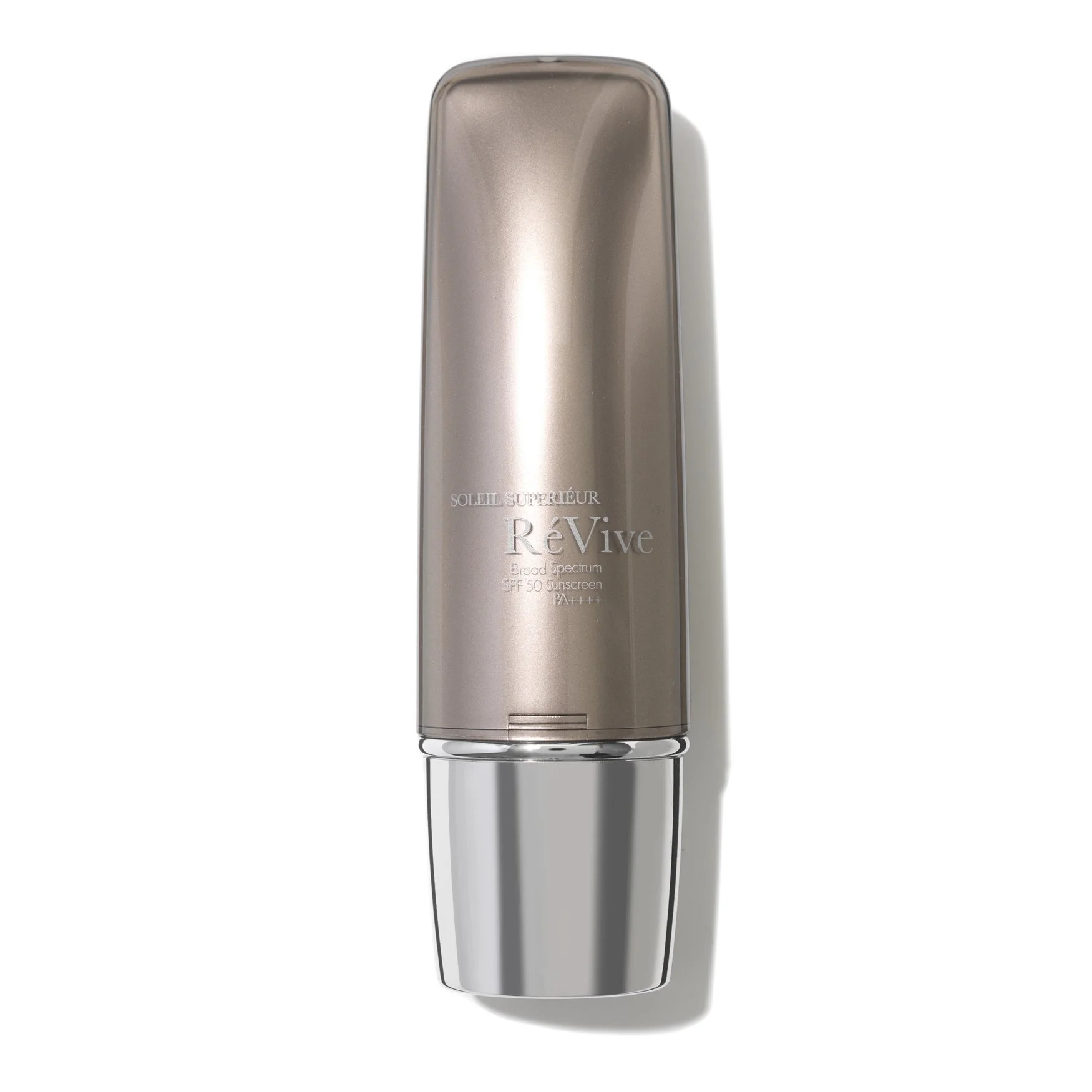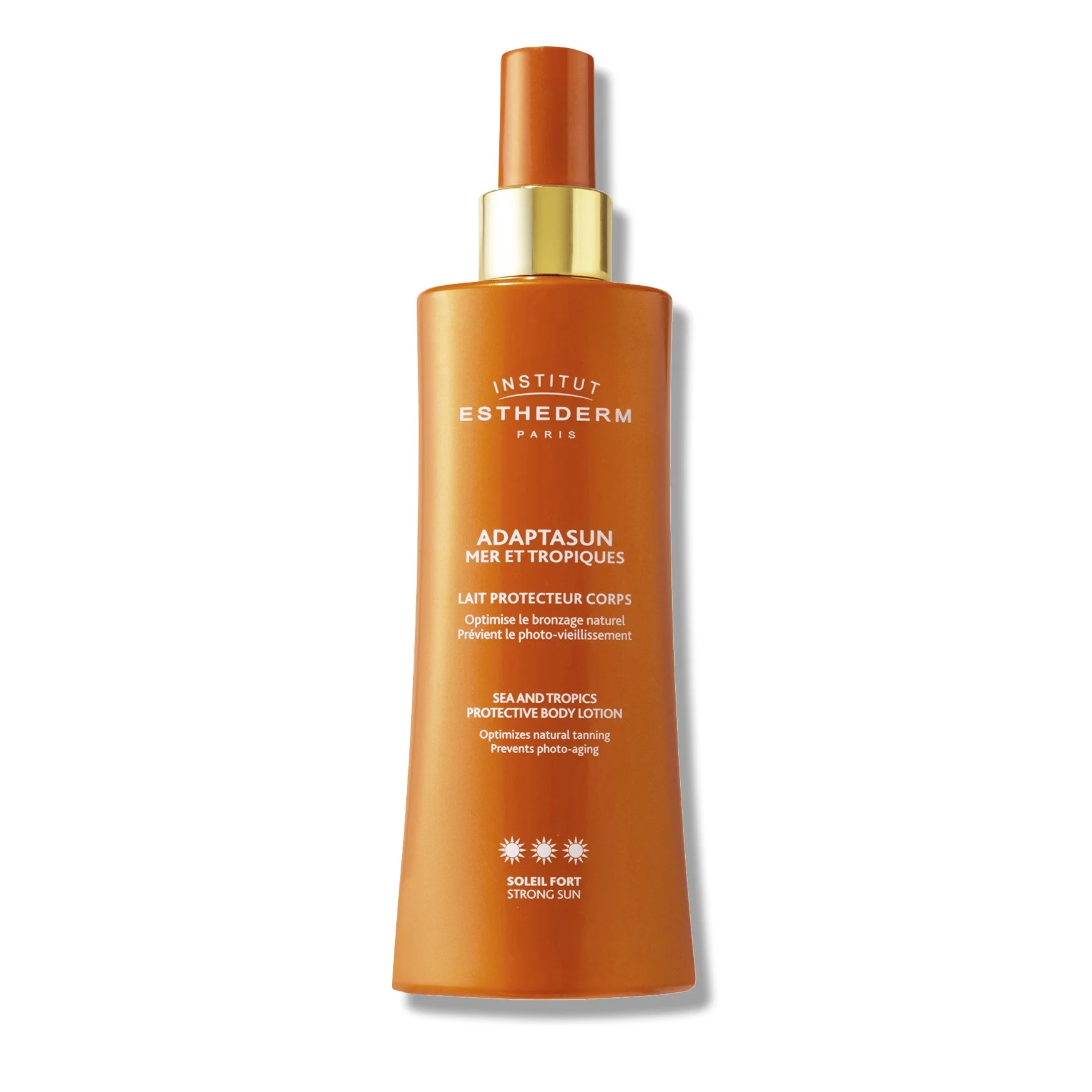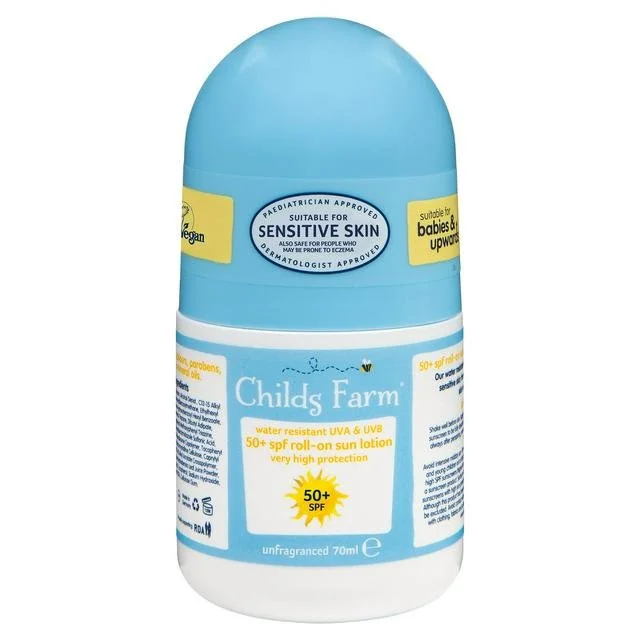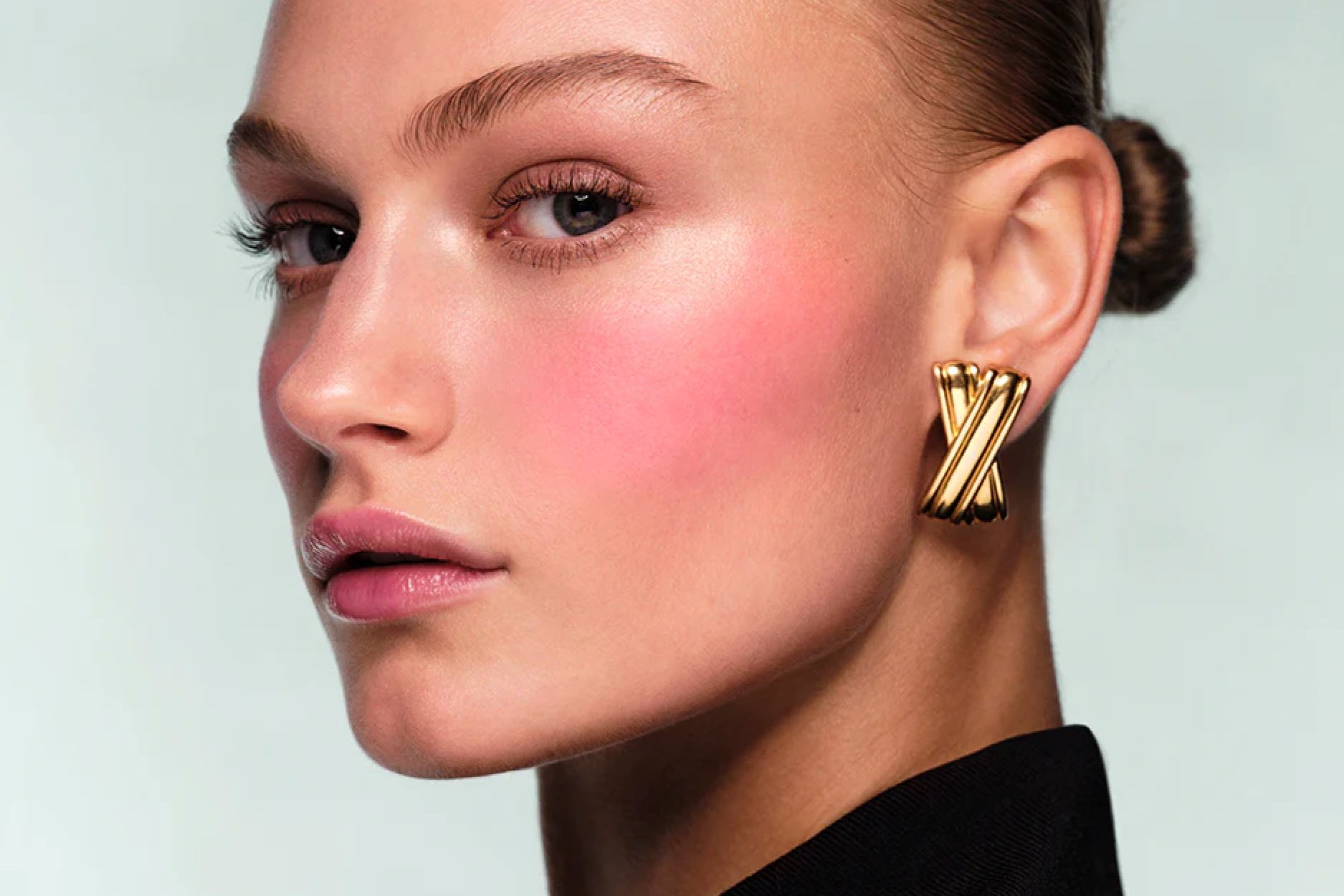Everything you Need to Know About Sunscreen
We may be heading in to another heat wave but did you know that summer isn’t the only time of year we should be slathering on the Sunscreen?
If you really want to protect your skin from those pesky UVA and UBA rays, sunscreen should become part of your year-round routine, because while it may not always feel like it (especially here in the UK), the sun is always shining.
But are all SPF’s equal? Should we opt for a physical or chemical sunscreen? And does our skin tone determine what factor we should be using?
To clear up any confusion and dispel any myths we asks QMS Medicosmetics Skincare expert Rowan hall to share her sincere back to basics.
Should we all be wearing SPF50 regardless of our skin tone or where we live?
Yes, we should all wear SPF50 daily regardless of skin tone, darker skin tones don’t have more ‘protection’ naturally than lighter skin tones this is a common mis-conception – darker skin tones are actually more prone to inflammation from the sun which can lead to pigmentation. We also all live with high levels of UV so everyone needs to protect daily. You will find sun protection factors (SPF) labelled on products and generally people think that SPF50 is ‘stronger’ protection than SPF30 however, the level of protection is the same, the ‘SPF’ number indicates the length of time that you are protected, as a general rule SPF30 would protect you for around 3 hours and SPF50 5 hours, so that’s why I recommend SPF50 as you are protected for a longer period of time.
What do you recommend for people who find that SPF can break them out or feel very heavy/oily on the face?
SPF formulas have come on a long way in the last 5 years and have become a trending topic - there are now many on the market to suit all skin types. There are two types of protection available chemical and physical. Generally physical sunscreens have a heavier texture as they ‘physically’ block out the sun. However, for maximum protection I do recommend using a sunscreen with both chemical and physical in the formulation. The QMS Cellular Sun Shield SPF50+ has both chemical and physical protection but is a lightweight formula that provides UVA and UVB protection.
How can people avoid purchasing a facial SPF that leaves a white film on the skin?
As above it’s about choosing a formula that works for you and seeing if the sunscreen is physical or chemical. As I recommend to use a formula with both of these my tip to help prevent a film on the skin but still get maximum protection is to heat the product in your hands pre-application, this will help absorption and leave less of a film.
When should we be wearing SPF in the UK ?
The sun is one of the biggest causes of aging, and a leading cause of skin cancer, so it’s essential to wear an SPF all year round, even if you are at home for the day or the weather is overcast – UV rays are still able to penetrate through the clouds and reach your skin. There’s an argument that wearing SPF daily can inhibit Vitamin D absorption, however, you actually absorb most of your Vitamin D through your eyes, and its best absorbed in the morning – so I recommend taking a morning walk with your SPF50 on and leave the sunglasses at home.
What are the potential skin cancer warning signs that should prompt us to see a doctor?
Any change in the texture or colour of your skin in a specific grouped area – it’s a common mistake that it’s just mole changes such as shape or colour that we need to monitor, it’s important to also look out for any grouped area of skin where the texture has changed for a length of time, this could be in the form of dryness, itching, peeling, dimpling etc, it is always worth getting anything out of the ordinary seen by your GP.
Did you know? SPF is your BFF in the quest for younger looking skin (as well as, of course, protecting you from sun damage & melanomas)... which could potentially save you some serious ££ in not needing to book future Botox treatments! Prevention is always better than cure! SPF prevents key signs of ageing; such as wrinkles, sun spots, hyperpigmentation, fine lines & dark spots... with sun damage actually being responsible for the majority of signs of premature ageing. In order to see the true benefits and protect our complexions from damage, we should be wearing SPF every single day. And yes, that includes during the winter, on days where you're staying indoors (remember: our electrical devices & phone screens emit skin damaging blue light... it's not just the sun you need to watch out for!) or when its cloudy outdoors. If it's light enough for you to read in - grab that SPF and slather it on. We know the importance of SPF in healthy, younger-looking skin... but it's equally crucial to also understand how we should be applying these products for maximum efficiency too.
Now we are fully clued up about sunscreen, its times to find one that’s right for you. Keeping reading to discover Editor’s Beauty selection of the best sunscreens for every skin type.
QMS
Seeking to promote a golden tan, the lightweight Cellular Sun Shield SPF50+ from QMS Medicosmetics is an innovative sun protection cream designed for daily wear for even the most sensitive of skins. Infused with an exclusive DNA-Repair Complex, the sunscreen seeks to protect the skin against broad-spectrum UV rays, for smoother, radiant-looking skin.
Alpha-H’s silky, light weight sunscreen is a 3-in-1 moisturiser, sun shield and make up primer. Featuring pomegranate Seed Oil (nature’s own UV absorbers), this sweat- and water-resistant formulas is packed with antioxidants, to brighten the skin while fighting against free radicals. Non-whitening on all skin tones, it works beautifully as a base under makeup or on it’s own.
A French pharmaceutical classic, Avene’s SPF 50+ Fluid offers ultra-broad spectrum daily sun protection as well as protection from skin-ageing HEV blue light. Ideal for sensitive and combination skin, it’s light texture absorps in seconds to leaves an invisible finish on the skin, making it an excellent base for make-up.
GERMAINE DE CAPUCCINI
Made with 100% natural concentrated ginger root extract, to protect the skin’s barrier and calm sensitive skin, this refreshing dry oil lotion combines Germaine de Capuccini’s Tan Activating Technology to increase the intensity of your tan whilst hydrating and revitalising the skin.
TYPOLOGY
SPF50 Body Sunscreen £21.90
Blended with both mineral and organic filters Typology’s luxurious body sunscreen offers broad spectrum protection against UVA and UVB rays, while its light weight fluid consistency, aborsbs easily to leave nourishing yet natural finish.
CORSX
Aloe Soothing SPF50 PA+++ Sun Cream 50ml £18
Korean brand CORSX has developed somewhat of a cult following and for very good reason. Their Aloe Soothing SPF does not disappoint. Harnessing the powers of Aloe to calm and soothe the skin, while delivering long-lasting moisturisation and protection, while absorbing quickly into the skin without leaving any greasy or sticky residue.
RÉVIVE
Soleil Supérieur Body Broad Spectrum SPF 50 Pa++++ £125
We al know that SPF is key to maintaining a youthful-looking complexion, and RéVive's lightweight formula is with it’s broad spectrum protection and powerful antioxidants will keep your skin looking fresh, hydrate and radiant.
INSTITUT ESTHEDERM
Designed for use in high UV intensity sun exposure, Adaptasun Body Lotion uses a patented Institut Esthederm Adaptasun technology to target skin at a cellular level and help prepare for extended periods of time spent in the sun, protecting against the visible effects of photo-ageing.
CHILD’S FARM
50+ SPF Roll-On Sun Lotion Fragrance-Free £10
Created specifically for delicate, sensitive skin, this natural, vegan sun lotion comes in a handy roll-on formula, ideal for mess free application.


